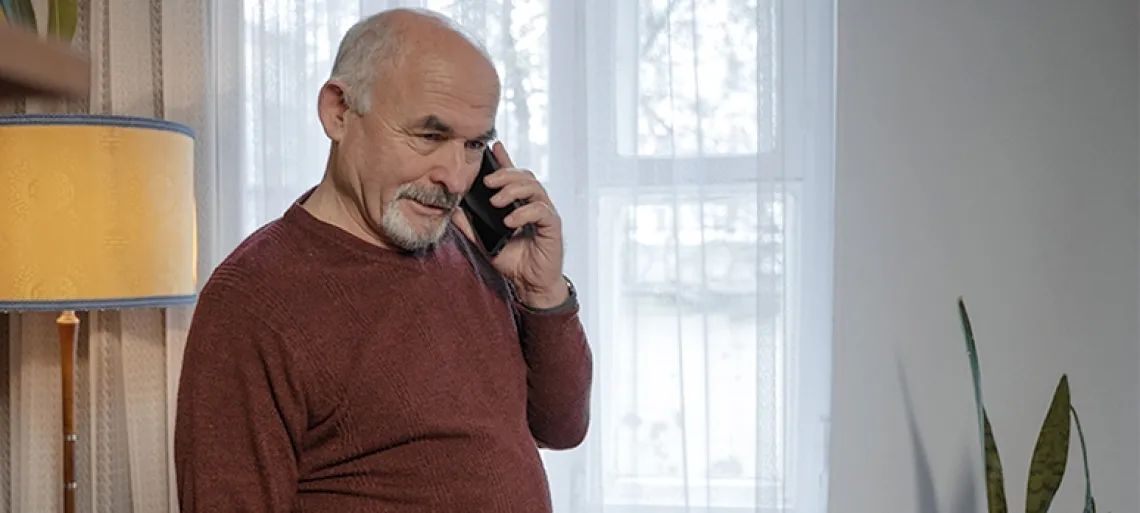
“Trust your gut” is an interesting expression. In this time of physical distancing and heightened stress, you may notice changes with your older loved ones that concern you.
Something alerts you about their appearance, a moment of confusion with a decision, or an action that’s just out of character. Your gut instincts are telling you something, but fear of the unknown may hinder you in pursuing these concerns.
When it comes to your parents, grandparents, or other older adults in your life, trusting your gut when you see changes in their behavior allows you to start a conversation, seek help and support services, and determine your next steps.
Start a conversation
You often need to have the first conversation with yourself. You need to understand why you worry about your loved one the moment you leave them, or to acknowledge that nagging awareness that keeps you distracted at work. You may want to stop and reflect on whatever emotions that you might be feeling – fear, sadness, even anger – before you take action, to make sure you’re acting from a place of calm and stability.
Other members of your family may not be on the same wavelength, and they may need to hear you out. Speak from the heart. Start by sharing what you have seen and what your gut instincts are telling you, and be honest about your feelings. This should open the door to compassionate conversations and a loving plan of action.
Seek help
Seeking help requires that you be open to asking for help and accepting the help that is offered to you. No caregiver should be expected to take on these responsibilities solo, and this is even more the case with the complications of COVID. Reaching out for help empowers you to give your loved one the best care possible.
To establish the cause of the changed behaviors, begin with a well-planned appointment with your loved one’s medical provider, either virtually or in person with required precautions.
You may have many questions before the visit: Do your concerns have something to do with an existing or emerging medical diagnosis? Could this be Alzheimer’s disease or a related dementia? Or maybe a mental health issue? Make sure to write down both your concerns and your loved one’s, because strong emotions and stressful situations can cause you to forget important questions.
With memory loss in particular, note that considering reversible health issues, including depression, social isolation, vitamin deficiency, and delirium, might help rule out dementia. In some instances, further evaluation by specialists may be required.
Find services and support
Thoughtful caregiving enables you to hope for the best, be ready for the worst, and get through everything in between. By exploring community resources and services, you can learn more about different approaches to help your loved one live their life with respect and autonomy. This preparation is especially important given the additional layer of safeguards necessitated by COVID.
Every community has an agency on aging that can direct you to resources, with support at the local, state, and national levels. In light of the pandemic, organizations have been creative and flexible with virtual support, as well as in-person services such as meal delivery and respite care.
Determine your next steps
Once you’ve learned what support is available, you can figure out the next steps in your loved one’s caregiving journey. That may mean setting up appointments with medical specialists, organizing calendars for friendly visits (in person or virtual!), or researching home care or alternative housing.
But you’ve got this. And as the dependent care adviser at Life & Work Connections, I’m more than happy to assist. I can help you navigate caregiving services and develop a plan of care – no matter the physical distance between you and your loved one, or the extent of support that you provide for them.
That feeling in your gut may serve as a scary red flag, but it allows you to address your concerns and better care for and honor your loved ones. So, your gut instinct can, in fact, be a gift. Don’t be afraid to trust it.

